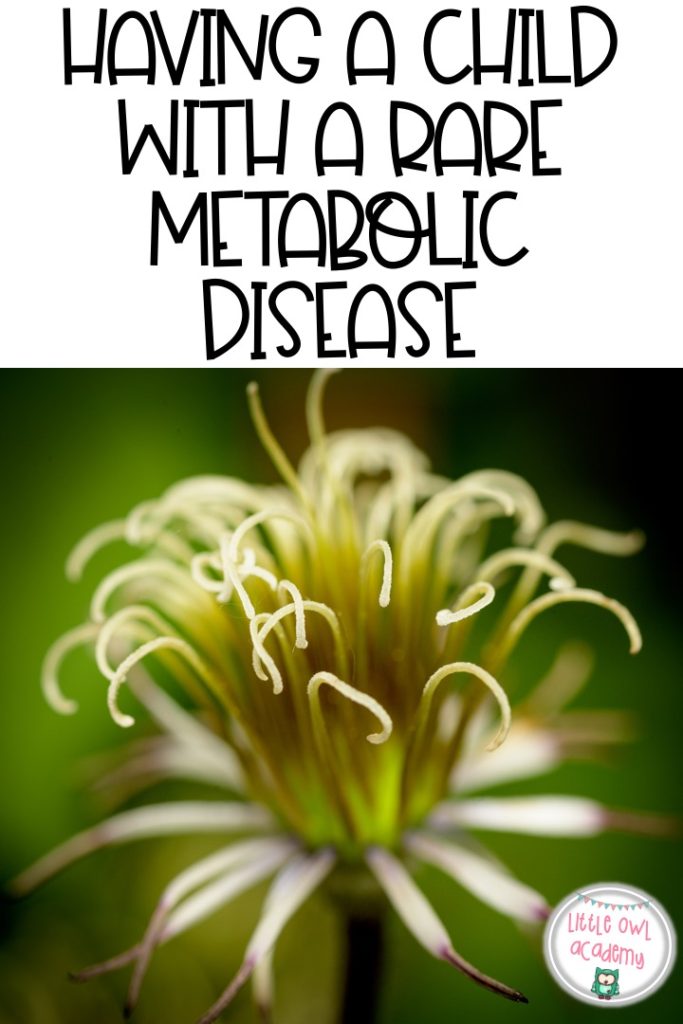“I have two children with a rare metabolic disease.” This is a phrase I never even imagined having to say in my lifetime. But, it’s my truth. I have three beautiful boys, who are happy, full of life, individuals, wild, and fun. Two of these boys have a rare metabolic disease called beta ketothiolase deficiency. If you haven’t heard of it, I’m not surprised. It is extremely rare. The statistics say one in a million. I think it’s even higher. I have scoured the world through social media, and have only come in contact with 5 families who have this disease. So, if your child was just diagnosed with BKT, I hope reading this can give you a little help and insight into what it is like living with beta ketothiolase deficiency.
What is Beta Ketothiolase Deficiency

To be honest, even though I have lived with someone who has BKT (short for beta ketothiolase) for the past 4 1/2 years, I still don’t understand the full medical definition provided by google. There is not a lot of information out there about BKT, and all that I have found is by someone with a degree in the medical field. So, here is the definition from a Mom, who likes things in average terms that I can understand.
BKT is a metabolic disease. It is genetic. It requires both parents to be carriers of the gene. If you are both carriers, your children have a 1 in 4 chance of getting BKT. An average person eats, and stores their food as ketones. Those ketones are used later when you need energy but aren’t eating. A person with BKT can make ketones, but can’t process them. So basically, they cannot fast or go long without eating because their body cannot provide them with the energy they need. If they go long periods without eating, their bodies will go in to ketoacidosis.
Living with Beta Ketothiolase Deficiency

Once diagnosed, the management of this disorder is fairly simply. For babies, a time increment for fasting will be determined by their weight. What they weigh in kilograms is how many hours they can go without eating. So, depending on your child’s weight at birth or a few weeks old, you will be waking them up every 2-3 hours. This time increment will increase as they get bigger.
Once they are one, corn starch is added to milk (or another type of liquid or food) at night before bed. Corn starch takes longer to burn than any other food, so it means their little bodies work on that corn starch for half the night, so they only go a few hours fasting. If the child gets sick and cannot eat, hospital visits are required. The child is put on a special IV solution to help them get through the sickness without going in to ketoacidosis. It’s not fun, but it helps the child immensely. Besides those things, the child is just your regular, typical, normal child!
Having a child with BKT and what it means for your family

There are hundreds of different metabolic diseases. Some rare, and some more common. The more rare kind are difficult, because without someone to rely on, talk to, or even discuss treatment options with, it can be difficult. There are no facebook support groups for people with BKT! It can often feel lonely and overwhelming. Hang in there!
One of the trickiest things for me is, metabolic disorders are hard to explain to other people, especially if they have never heard of them before. I have even had people go so far when I say, “My child has a metabolic disease,” to react almost as if they’re afraid my child will pass it to them, like the common flu. Metabolic diseases cannot be passed that way! They are purely genetic. It can also be difficult to explain it to your own small child, especially since there are not any other children in their life (most likely) with this disease. Please use me as a resource! If you have a young child with BKT, reach out to me at littleowlacademyresources@gmail.com. I would love my sons to make friends all around the world whose bodies are like their bodies!
How do you know if your child has BKT
I’m so grateful we live in the 21st. century where so much medical knowledge is known! I have looked back on my ancestry and seen death certificates with a cause of death: failure to thrive, on family members records. There is a good chance they had BKT and they just didn’t know. It really is a fairly recent discovery.
Your child will be tested for BKT on the typical newborn screener. If it comes back flagged, your doctor will let you know. They will then suggest a second test. Now, this is crucial: GET A FULL BLOOD TEST! I hope I don’t sound as if I am yelling, but if you get anything from this post it is just that. It has been typical to use a urine sample as the second test. But, as we learned with my oldest son, it does not usually pick up BKT because these infants have not been fasting at two weeks old. Our metabolic doctor has written an article for the medical field on this topic, so hopefully your doctor suggests a full blood test, but if they don’t, refer them here or tell them to contact the department of Genetics and Metabolic at Primary Children’s Hospital in Salt Lake City for more information! Once the blood test is completed, it will either confirm or deny the presence of BKT, and then you can move forward with a plan and figure out what it’s going to be like living with beta ketothiolase deficiency.
Our BKT story

The question above is one I asked myself the first almost two years of my sons life. I had family members ask me if I knew why he was struggling, and even his pediatrician would ask me and be unsure. See, my oldest son was not diagnosed at birth. How I wish he would have, because it would have changed his life! But, he wasn’t. His newborn screener came back positive with BKT. In the follow up urine test, though, it came back negative. As described above, we later learned it was because he had not been fasting. At the time though, we did know this. So, for the first almost 2 years of his life, we assumed he was a typical child.
Around one year, when he was still not sitting up super confidently, not crawling well, or pulling himself up to stand, we began to get worried. By 18 months, when not much more had happened for him, we were very concerned. We got him in to early intervention, but he still wasn’t improving. His speech also showed delays and he was not saying any words. His pediatricians were unsure as well, but didn’t push for any testing of any kind. Then, at 22 months, he got immensely sick. He was life flighted to a large hospital and was in severe ketoacidosis. It was during this hospital visit that we came in contact with the metabolic team who helped us figure out that he had BKT.
Now, I have never heard of another child like my oldest son, one who was diagnosed later and has many delays. 90% of the children I have learned about with BKT were diagnosed at birth. So, we aren’t 100% positive that his delays were caused by the BKT, but we are about 99% sure. Because he was sleeping through the night at 6 weeks old and going that long without eating, his poor little body was struggling, but we just had no idea! So, my encouragement to you is, if you have a child with delays, push the doctor to help you find answers. Don’t just brush it off. See what testing you can do (I suggest genetic testing!) to see if there could be an underlying problem. It could change their lives!
My youngest son also has BKT, but his story has been completely different. He was tested at birth, diagnosed at 2 weeks old, and has not gone a night fasting in his life. He is only 10 months old, but so far he is on track developmentally to any other child his age. He has had a few hospital visits because of BKT, but developmentally, he is good. It’s been a night and day experience.
I will update this as our story grows. With my oldest being almost 5, we have many years of developing through BKT to learn from. If your child has been diagnosed with BKT, hang in there. It can be completely scary, it’s so unknown, it’s difficult to find information, so I hope that this post has helped you. Again, please reach out to me at littleowlacademyresources@gmail.com if you have questions, or you can find me on instagram @melissaslittleowlacademy. I want to help any way I can!
My family is definitely not your typical family, but we are a very blessed family. Living with beta ketothiolase deficiency has changed our lives, but I would say it is also a blessing. It has taught us patience, humility, perseverance, and what a true hero looks like (I’ll give you a hint, they’re about 3 feet tall and wear hospital gowns hooked up to IV’s.)
